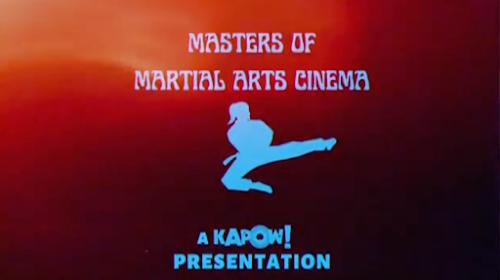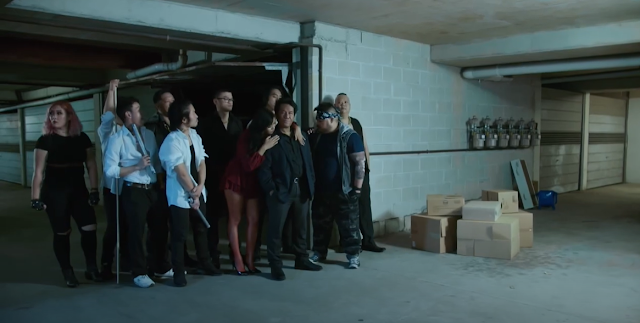KAPOW! Masters of Martial Arts Cinema - Maria Tran
Today, we are at the Art Gallery of New South Wales in the Sydney Modern Project building, which is the new, clear, see-through structure. But before that, we were screening the documentary titled "Warrioress," featuring nine martial arts extraordinaries in Australia, including Cynthia Rothrock.
What was the motivation behind ‘Warrioress’?
I decided to create the documentary because I had never seen a group of women come together and discuss a subject so important to them. Many of the women I interviewed were world champions, athletes turned mothers and entrepreneurs. They hadn't had the opportunity for their voices to be seen and heard. This drove me to pursue the documentary, aiming to portray martial artists not just at their peak performance, but also to highlight how it influences other aspects of their lives. The response has been positive so far, with people eager to see "Warrioress" in different venues. I'm considering international screenings along with those in Australia, as the subject matter is highly relevant and still underrepresented.
How did you get into martial arts?
Martial arts became a part of my life during my childhood when I was nerdy and bullied. I lacked self-confidence and feared others. I learned about strength, body control, breath, stance, and gaze through martial arts. This transformation led me to participate in small competitions, although I eventually shifted toward film. While martial arts demanded dedication, I found my passion in acting and performing, which I combined with indie action films.
How did your experiences working in the film industry in Asia, influence your perception of work ethic and ambition compared to your observations in the Australian film industry?
This allowed me to work both in front of and behind the camera, crafting action sequences and editing. I worked in Asia, including Vietnam and China, producing two movies. During my experience there, I observed the intense work ethic. In contrast, in Australia, there seemed to be a tall poppy syndrome, where people were quick to criticize ambition. Even on Jackie Chan's film, "Bleeding Steel," I noticed the differences in working styles. This has reinforced my belief that independent action cinema is the way to override such challenges.
What’s your advice to other filmmakers?
Local filmmakers need to step up, tell their stories, and find ways to gain international recognition. My partner, Takashi, is in Las Vegas but is heading to LA for a screening of "Echo 8." Seeing our film alongside works by Donnie Yen and other action films makes me proud. It's a testament to defying naysayers and pursuing our passion with limited resources.
Tell us about your film production company?
My production company, Phoenix Eye Films, was born out of a group of individuals who didn't fit the mainstream mold. We came together with our diverse skills, refusing to change to fit in. I encourage everyone in Phoenix Eye to consider the projects they're truly passionate about and to put their hearts on the line. Each person's commitment contributes to the collective vision, where we showcase our unique stories and ideas. Phoenix Eye embraces people from all walks of life, including those with disabilities. We provide support, whether it's gear, personnel, or a location, for those dedicated to their work.

.jpg)

Comments
Post a Comment